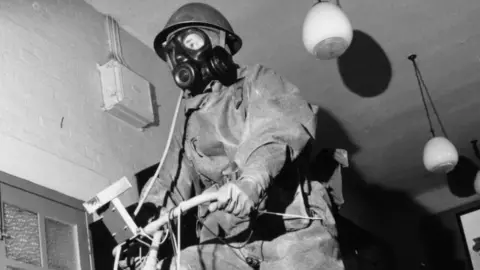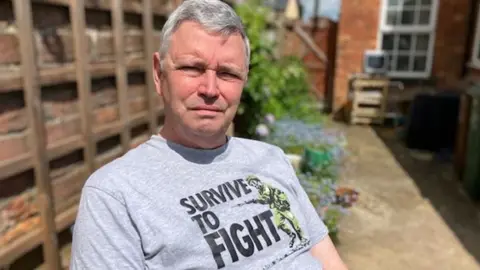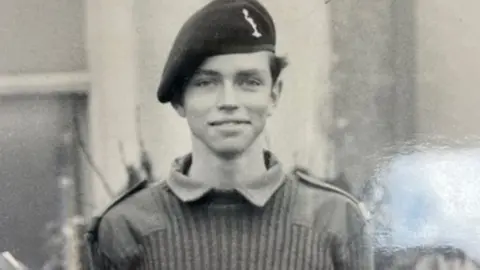Porton Down study finds test veterans have 6% higher mortality rate
 Getty Images
Getty ImagesEx-servicemen who took part in chemical warfare research faced a 6% higher mortality rate than similar veterans not involved in tests, a study finds.
They also found those who took part in the trials at Porton Down between 1960-1964 were at a 34% greater risk of early death but they could not say why.
A range of conditions had caused their deaths including cancerous tumours.
The Ministry of Defence has not admitted fault but has paid compensation to some veterans.
The study findings have been published in the International Journal of Epidemiology.
Porton Down military research centre opened during World War One in response to the use of chemical weapons and it conducted research into chemical weapons and deadly diseases, such as Ebola, plague and anthrax.
More than 20,000 service personnel were exposed to lower doses of chemical warfare agents and their antidotes, some of which are now known to be carcinogenic.
The tests have since raised questions about the long-term impacts on the health of veterans attached to the Service Volunteer Programme.
As part of a study by King's Centre for Military Health Research (KCMHR) at King's College London and Lancaster University, researchers compared the medical records of 16,721 veterans, who took part in the programme from 1941-1989, with 16,228 non-Porton Down veterans.
'Greater risk'
While there was only a small increased risk overall (6%), the study found that military veterans on the programme between 1960-1964 were at significantly greater risk of dying from causes including cancerous tumours, diseases within the circulatory system and smoking related deaths.
Dr Tom Keegan, one of the study's authors and a Senior Lecturer in Epidemiology from Lancaster Medical School, said: "Their risk was about 34% increased, so that's definitely something we want to look at further.
"We don't know if that's associated with any particular testing programme that was going on at the time, but we are very curious to find out more."
He added: "Military personnel were exposed to over four hundred different types of chemicals over the course of the programme, so we now want to investigate whether particular chemicals are associated with increased risk of poorer health."

Veteran Ian Foulkes from Chippenham took part in trials as a signalman when he joined aged 19. He had to breathe in the nerve gas agent Sarin in 1983.
The 59-year-old said: "It felt to me as if my wind pipe had constricted down to the size of a straw.
"The pupils of the eyes constrict and, if I remember correctly, my pupils were measured at one point as 1mm across. As time went on I started to get quite a bad headache.
"I was already drooling a bit, as well as having a bit of a sweat."

After taking part in the trial, Mr Foulkes said his life had been blighted by medical problems, including breathing and digestive issues.
"I used to be very, very prone to chesty coughs and also I believe it made me far more susceptible to depression."
He and other veterans have received compensation from the government, although it has not admitted liability.
In 2006 the family of RAF airman Ronald Maddison, who died after a nerve gas experiment at Porton Down in 1953, received £100,000 in compensation from the Ministry of Defence (MoD).
In response to the latest findings, an MoD Spokesperson said: "We are grateful to all those individuals who took part in these studies and contributed to keeping our country safe.
"We will continue to work alongside King's Centre for Military Health Research and welcome the findings in this report."

Follow BBC West on Facebook, Twitter and Instagram. Send your story ideas to: [email protected]
